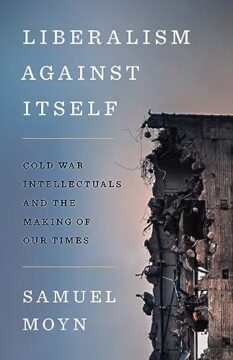Ohad Reiss-Sorokin in The Hedgehog Review:
 Hollywood rarely shops for film rights at academic presses. Yet if Samuel Moyn’s thought-provoking new book, Liberalism Against Itself, were adapted into a movie, I would recommend making it a courtroom drama.
Hollywood rarely shops for film rights at academic presses. Yet if Samuel Moyn’s thought-provoking new book, Liberalism Against Itself, were adapted into a movie, I would recommend making it a courtroom drama.
Imagine Moyn, professor of law and history at Yale University, as the prosecutor, approaching the bench with a steady step, looking at the jury, and reading the opening statement. “Cold War liberalism,” he says, beginning with the main defendant, “was a catastrophe.” Then he takes a deep breath before naming the victim—“for liberalism.” The indictment is long and detailed: Cold War liberalism abandoned what Moyn describes as liberalism’s original goals of “perfectionism” and the “highest of life.” It made us suspicious of any progressive historical change, replaced promises of global freedom with a “West versus the Rest” narrative, and, finally, supported a harsh regime of self-discipline as a precondition for freedom. Its champions persisted in an attitude of skepticism, even paranoia, toward the state, despite living in “the most ambitious and interventionist and largest—as well as the most egalitarian and redistributive—liberal states that had ever existed.” Their ignorance, prosecutor Moyn argues, left welfare states without intellectual backing as they fell prey to the neoliberals of the late twentieth century, who sought to dismantle the social safety net and economic regulation.
More here.
